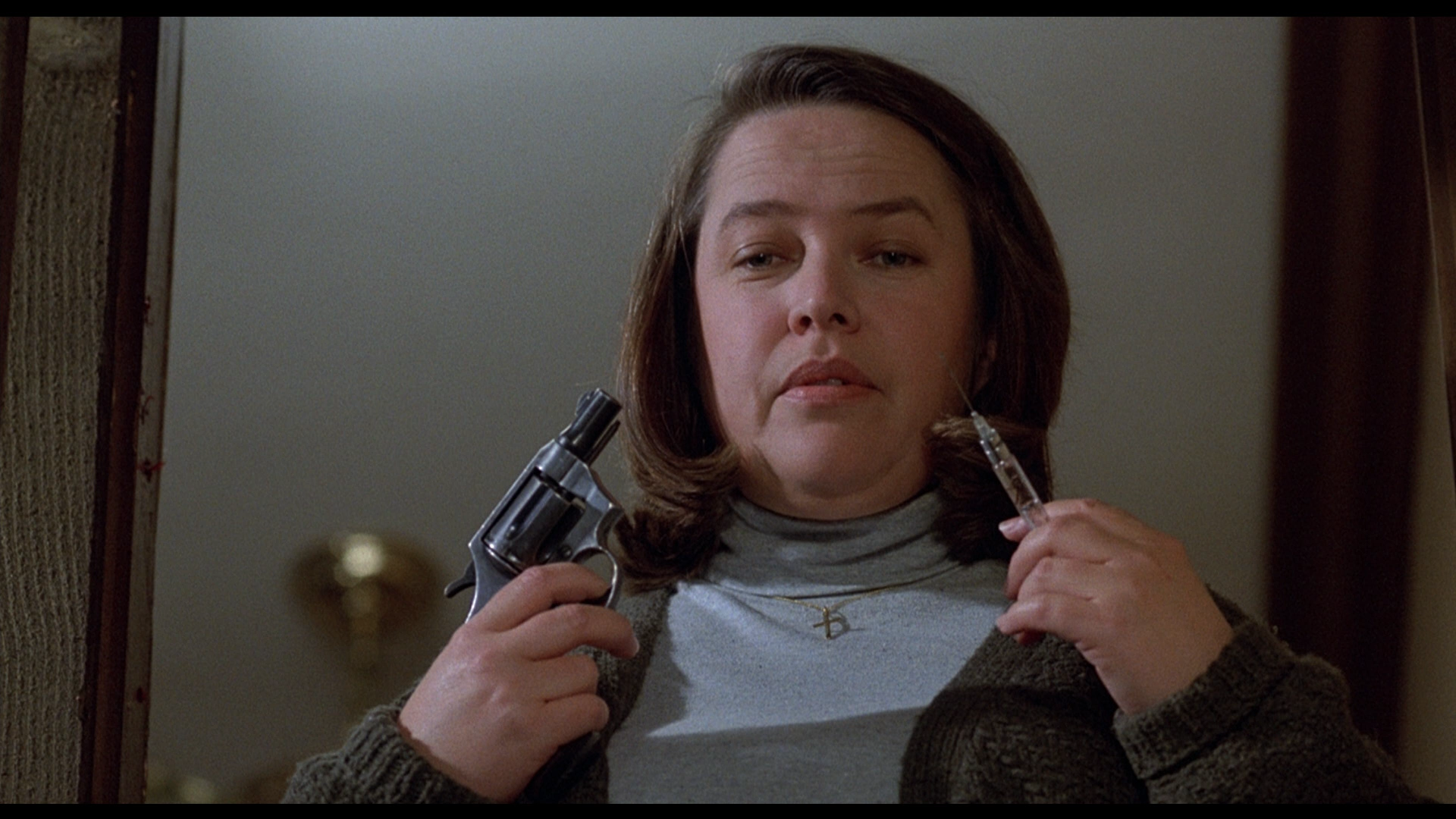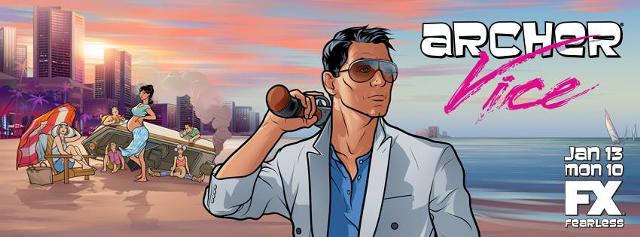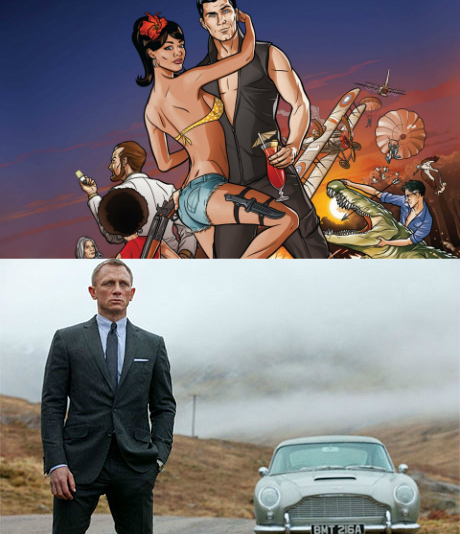
In Misery, the 1990 movie based off Stephen King’s bestselling book, Kathy Bates stars as Annie Wilkes, the “number one fan” and kidnaper of captive romance novelist Paul Sheldon. Wilkes subjugates Sheldon to psychological and physical torture, while forcing him to write another book about Misery Chastain, the protagonist of Sheldon’s series. Bates’ performance is stunning and terrifying, and earned her an Academy Award for Best Actress. Wilkes is somewhat of an oddity in horror, as she is a female villain. In a genre that is so dominated by male villains, it is worth considering what threat Annie Wilkes presents to the audience, and why her threat scares us so deeply.
Underlying this questioning is the assumption that horror is a genre that typically offers women heroic positions and men villainous roles. In horror movies, one lives a feminist fantasy: men are portrayed as violent, think, and single-minded, oppressing young, usually female, protagonists. The ideological importance of this argument is that horror movies portray male violence negatively, implying that it is an issue which needs to be overcome, and can be overcome, by women. Given that many viewers of horror are young and male, this argument implies that men recognize and choose to live out the repercussions of their own violence.
Misery reverses this fundamental dynamic of horror film. Instead of a male villain and female hero, Misery presents us with a male hero and female villain. Correspondingly, instead of a feminist movie, Misery is a misogynistic movie. Indicative of this is that the camera never switches to Wilkes’ perspective. Instead, we are bound to Sheldon and his negative view of Wilkes. The camera reinforces “audience’s identification with his victimization while distancing us from Annie herself.” (Magistrale 66) We are not only viewers of Sheldon’s punishment at the hands of Wilkes, we experience it as well.

The viewer shares Sheldon’s pain as Wilkes “hobbles” his feet
Furthermore, all the oppressive forces that repress Sheldon are female. Out of the five women discussed in the film, three are damaging to Paul. Wilkes tortures him physically, but Sheldon’s editor, Marcia Sindell, and Misery Chastain prevent Sheldon from becoming a “real writer” by limiting his creative talent. Even the Sheriff’s wife, one of three women in speaking roles that are more than one line, is depicted as nagging and obstructing the Sheriff’s search for Sheldon. Finalizing the movie’s crusade against women is the climax of the film in which Sheldon performs a symbolic rape of Wilkes by shoving the burnt remains of Misery’s Return down Wilkes’ throat (Lant 177).
Misery’s misogynistic leanings should not be misinterpreted as disparaging women’s abilities to be capable people. While the movie believes that women are bad, it certainly doesn’t believe that they aren’t competent. Annie Wilkes is incredibly adept and intelligent, albeit in a twisted and insane manner. Wilkes is revealed to have a long criminal past, showing her to be a serial killer who has killed her husband and 11 children, escaping all charges. Sheldon spends much of his time in the movie attempting to outsmart Wilkes, often to no avail. Twice Sheldon escapes from his room, only to have Wilkes notice because Sheldon misplaced a porcelain penguin, which “always faces south.” Placed in the historical context of King’s writing, Wilkes “is a prototype— at least in terms of her strength, intelligence, and angry resolve— for King’s feminist protagonists who follow her in a series of heroine-centered books published during the 1990s.” (Magistrale 66). This context confirms that Wilkes’ power is not an accident, although she is marred by her mental disorders and this books role as a transition for King.
Not only is Wilkes intelligent, she is emasculating. She dominates everything relating to sex, social affairs, and economic activity. Sheldon is confined to Wilkes’ bed, and bedroom, for the near entirety of the movie. Multiple times we see symbolic forms of rape carried out by Wilkes onto Sheldon, such as when she forces painkillers down his throat or injects him with a sedative to keep him quiet. Wilkes is entirely in control of with whom Sheldon can communicate. This is especially apparent in the beginning of the movie when Sheldon begs to call his daughter. Wilkes, after initially claiming she did, screams at Sheldon and refuses him access to the outside world. Wilkes is also the liaison to resources for Sheldon. She decides what he can possess, and his economic life is entirely at her mercy. She forces him to write by threatening violence or starvation if he doesn’t. Wilkes recognizes Sheldon’s dependence, informing him, “And you better hope nothing happens to me because if I die, you die.” Wilkes’ dominance of these spheres confirms the seriousness with which the movie interprets the feminine threat.
Wilkes is not violent in the same way that men tend to be violent in horror films. The 2005 movie Hostel, another movie premised on kidnapping and imprisonment, provides a good contrast to Misery. In Hostel, an evil group kidnaps young travelers in Europe and allows “clients” to come and torture, have sex with, or kill the kidnapped people. One client, dubbed “The American Client,” is nearly identical to the types of villains found in most horror movies. Leather clad, tall, profane, and powerfully built, the American embodies the twisted male aggression that horror films dislike and attempt to defeat. He is the epitome of the scum that controls violence, sex, business, and money. Wilkes may control those elements, but she hardly embodies them. Rather than acting as a sex crazed maniac, Wilkes poses as a near puritanical housewife and former nurse. Her associations are with healing and the hearth rather than pain and business. She never curses, and emphasizes doing God’s work. Annie Wilkes is incredible for this reason: despite her maniacal tendencies she manages to distance herself from masculine violence. Instead, she portrays what violence would look like if domestic women controlled the world.
The adoption of power and violence by the domestic woman seems to be the movie’s main fear. However, there are a few issues with that argument that need clarification. One could argue that the premise of power passing to the home sphere isn’t realistic. Looking at modern women’s equality movements, women aren’t fighting for more control of the home, they want equality in the workplace, equal pay, and access to birth control. The current women’s rights platforms don’t want to maintain the status quo. But Misery isn’t concerned with those modern claims. Misery explores a traditional woman in her element rather than a modern woman in a man’s element. The movie is concerned that women are gaining power in areas where they already have it.
The movie seems to be specifically pointing towards marriage. This association can be contested, primarily on the basis that that marriage is typically seen as strangling towards women rather than men. However, the emphasis on control of Sheldon’s creativity throughout the film shows that Misery is concerned with marriage’s effects on men. Sheldon wants to be in control of his literary creations, but the in the film women keep his genius and happiness at bay. His editor wants to make money off him, Misery makes him feel like a fake writer, and Wilkes forces him to write against his will. Sheldon feels shackled to the women in his life and he wants, fittingly, a divorce from them. Wilkes is the opposite; she views marriage as sacred, claiming, “People just don’t respect the institution of marriage anymore. They have no sense of real commitment.” At the end of the movie, Wilkes decides that she and Sheldon will take their lives, reminiscent of the star-crossed lovers Romeo and Juliet. The symbolic rape of Wilkes avoids Sheldon’s death, which would be an end to his creativity that was held at gunpoint the whole movie. Instead, Sheldon kills Wilkes with his typewriter, one of the tools of his enslavement, and writes a book about a man, transcending the femininity in his life. These themes are reinforced by the title of Sheldon’s new book, which is “The Higher Education of J. Phillip Stone.” By shedding the woman’s influence, Sheldon can self-actualize.
There is one more possible message to glean from this movie. Sheldon overcomes the burdens of marriage despite Wilkes’ attempts to subdue him through violence. The movie, with its large male audience, clearly disapproves of marriage for men. But, in some small way, it also encourages women to explore other spheres than the home. Clearly this movie believes women cannot be violent and powerful while bonded to men. Perhaps they should try for the workplace after all.
Works Referenced
Clover, Carol. Men, Women, and Chainsaws: Gender in the Modern Horror Film. Princeton, New Jersey: Princeton University Press, 1992.
Lant, Kathleen Margaret., and Theresa Thompson. Imagining the Worst: Stephen King and the Representation of Women. Westport, CT: Greenwood, 1998. Print.
Magistrale, Tony. Hollywood’s Stephen King. Gordonsville, VA, USA: Palgrave Macmillan, 2003. ProQuest ebrary. Web. 18 May 2016
Misery. Dir. Rob Reiner. Prod. Rob Reiner. By William Goldman. Perf. James Caan and Kathy Bates. Columbia Pictures, 1990
MovieClips. “Hostel (7/11) Movie CLIP – The American Client (2005) HD.” www.youtube.com. Web. 25 May 2012.



.jpg)


